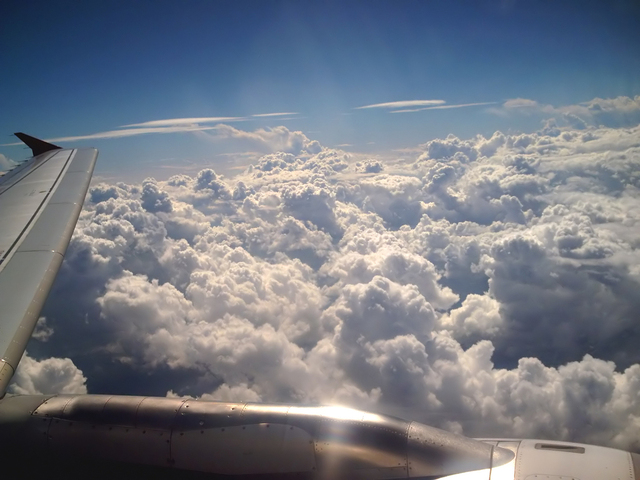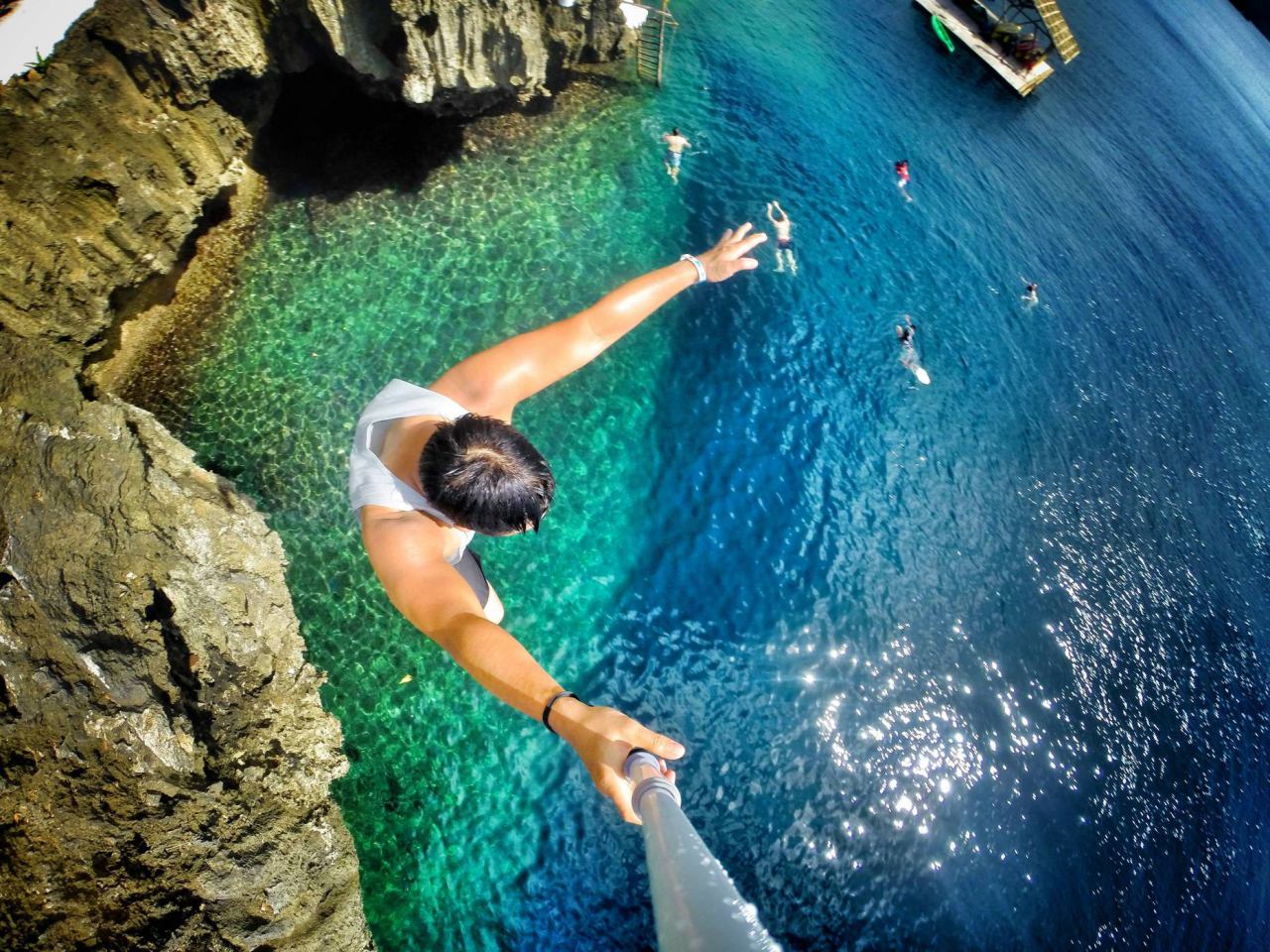August 19, 2015
 |
| Photo by Freeimages.com/Kevin Turcotte |
Oliver Smith, The Daily Telegraph, August 19, 2015
With 59 of its 63 airlines banned from flying in EU airspace, safety remains a major concern for Indonesia’s aviation industry.
The safety of Indonesia’s aviation industry is back in the spotlight following the crash of a Trigana Air Service flight on Sunday.
Since 2001, there have been at least 40 air accidents on Indonesian soil that resulted in fatalities, according to the website aviation-safety.net. They include Indonesia AirAsia Flight 8501, which crashed into the Java Sea last December, killing 162 people. By comparison, there have been just six on UK soil during that time – all involving small jets with fewer than six individuals on board.
According to aviation-safety.net, Jakarta-based Trigana has been involved in 15 accidents during its 23-year history – although FlightGlobal.com puts the figure at 19 – including 10 hull losses.
It is one of a remarkable 59 Indonesian airlines currently banned from flying in EU airspace. That’s every airline in the country bar Garuda Indonesia, Airfast Indonesia, Ekspres Transportasi Antarbenua and Indonesia Air Asia. No other nation has as many carriers banned from operating in Europe.
Following the Indonesia AirAsia accident, The New York Times reported that the country scored just 61 per cent for “airworthiness” in a May 2014 UN report, behind lesser-developed neighbours such as Laos and Myanmar. It added that insurance companies charge Indonesian airlines nearly double the global average for premiums because of their poor safety history.
Arnold Barnett, an MIT statistician who specialises in airline safety, told the paper the death rate in plane crashes in Indonesia was one per million passengers – 25 times the rate in the United States. “To assert that the disparity is only a coincidence or manifestation of bad luck would be preposterous,” he said.
Those odds are still pretty remote. And those Indonesian airlines not banned by the EU ought to be on a par with all those that European regularly fly with. But there is clearly a lingering problem with air safety.
Indonesia’s aviation industry has expanded rapidly in the past decade or so, with numerous new low-cost airlines catering to the millions who would now rather travel around the country’s 17,000 islands by air rather than ferry. Passenger numbers within the region rose by 81 per cent between 2006 and 2013 and according to a report from the International Aviation Transport Association (IATA), it will be the sixth largest market for air travel within 20 years. By 2034, 270 million passengers are expected to fly to or from one of Indonesia’s airports each year – 30 million more than UK airports currently handle annually.
But there are doubts that safety standards are keeping up. In the same report, IATA said that safety was the biggest concern for the successful development of aviation in the country. “Indonesia has had at least one hull loss every year since 2010,” it said. “In the International Civil Aviation Organization’s (ICAO) Universal Safety Oversight Audit Program (USOAP), Indonesia was assessed as below the global average. The US Federation Aviation Administration downgraded Indonesia to Category 2 in its International Aviation Safety Assessment program.”
The FAA’s rating indicates that it believes Indonesia’s aviation authority is not up to scratch in areas such as pilot training, inspection procedures, technical expertise or record keeping.
December’s Indonesia AirAsia crash, which occurred shortly after the pilot had requested permission to deviate from the flight path to avoid a storm, led to suggestions from aviation experts that some pilots felt pressured to fly on through extreme weather. Had the pilot abandoned the ill-fated journey, he “would have had to answer questions to management, to the accountants, to the bean counters,” Desmond Ross, a pilot who lived in Indonesia for a decade, told The Telegraph at the time. “If you ask the budget airlines they will tell you they don’t cut corners on maintenance and they don’t cut corners on training or anything that has got to do with safety. Well, that is what they say and let us hope that it is true. But we know that they are trying to cut corners in just about every other area.”
The last major accident to occur in Indonesia prior to December’s crash was in 2007 on a flight operated by the now defunct Adam Air, in which 102 people died. Claims later emerged that the airline, once Indonesia’s most popular low-cost carrier, had bribed aviation officials, pressured pilots to breach safety rules and used recycled spare parts.
IATA also suggested that Indonesia was not taking advantage of its resources: “The IATA Operational Safety Audit (IOSA) is a global standard and is at the core of our efforts to improve safety. Since 2009, IOSA registered carriers recorded better safety performance than those not on the registry. In 2014, IOSA registered airlines had one accident for every 900,000 flights, compared to one accident for every 300,000 flights for those not on the registry. But of the 63 Indonesian airlines operating scheduled or chartered flights, only Garuda is in the IOSA registry.”
It added: “Turning around a safety record is not easy. The best laid plans need to be followed up with concrete actions. Where this has been done—in Latin America, China, and Nigeria for example—we have seen significant and sustainable improvements. Setting IOSA as one of the standards required for an Indonesian air operator’s certificate is but one of many needed actions.”
Last week’s accident will no doubt lead to further calls for Indonesia’s airlines and aviation authority to take action on safety.
Indonesian airlines banned by the EU
- AIR BORN INDONESIA
- AIR PACIFIC UTAMA
- ALFA TRANS DIRGANTATA
- ANGKASA SUPER SERVICES
- ASCO NUSA AIR
- ASI PUDJIASTUTI
- AVIASTAR MANDIRI
- AVIASTAR MANDIRI
- BATIK AIR
- CITILINK INDONESIA
- DABI AIR NUSANTARA
- DERAYA AIR TAXI
- DERAZONA AIR SERVICE
- DIRGANTARA AIR SERVICE
- EASTINDO
- ELANG LINTAS INDONESIA
- ELANG NUSANTARA AIR
- ENGGANG AIR SERVICE
- ERSA EASTERN AVIATION
- GATARI AIR SERVICE
- HEAVY LIFT
- INDONESIA AIR ASIA EXTRA
- INDONESIA AIR TRANSPORT
- INTAN ANGKASA AIR SERVICE
- JAYAWIJAYA DIRGANTARA
- JOHNLIN AIR TRANSPORT
- KAL STAR
- KARTIKA AIRLINES
- KOMALA INDONESIA
- KURA-KURA AVIATION
- LION MENTARI AIRLINES
- MANUNGGAL AIR SERVICE
- MARTABUANA ABADION
- MATTHEW AIR NUSANTARA
- MIMIKA AIR
- MY INDO AIRLINES
- NAM AIR
- NATIONAL UTILITY HELICOPTER
- NUSANTARA AIR CHARTER
- NUSANTARA BUANA AIR
- PACIFIC ROYALE AIRWAYS
- PEGASUS AIR SERVICES
- PELITA AIR SERVICE
- PENERBANGAN ANGKASA SEMESTA
- PURA WISATA BARUNA
- RIAU AIRLINES
- SAYAP GARUDA INDAH
- SMAC
- SRIWIJAYA AIR
- SURVEI UDARA PENAS
- SURYA AIR
- TRANSNUSA AVIATION MANDIRI
- TRANSWISATA PRIMA AVIATION
- TRAVEL EXPRESS AVIATION SERVICE
- TRAVIRA UTAMA
- TRI MG INTRA ASIA AIRLINES
- TRIGANA AIR SERVICE
- UNINDO
- WING ABADI AIRLINES
This article was written by Oliver Smith from The Daily Telegraph and was legally licensed through the NewsCred publisher network.
What do you think of this $type?










